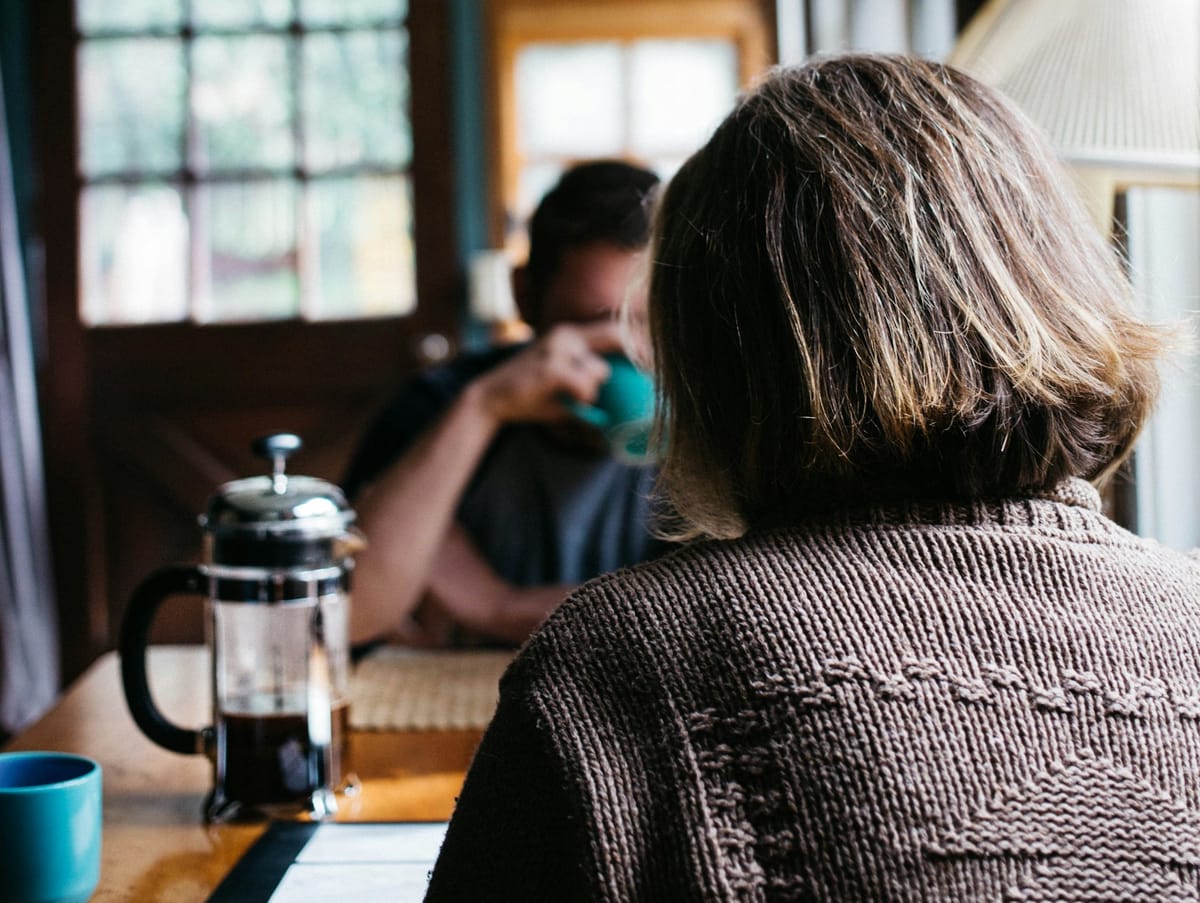Still Not Happy ?

You buy a $500 Breville (a fancy coffee machine) because you think it'll make your mornings better. For the first week, it does. Perfect espresso, exactly the right temperature, that satisfying hiss of steam. You wake up looking forward to that first cup. The machine sits on your counter like a small promise of daily pleasure.
Then the novelty wears off. The coffee tastes the same as it did before. Your mornings aren't transformed. The machine becomes just another appliance, another thing to clean, another monthly payment on your credit card.
Now you're annoyed at the machine. It promised something it didn't deliver. You start resenting the counter space it takes up, the noise it makes, the way it never quite gets the milk foam right. What began as attachment has become aversion.
This is how we trap ourselves.
Every Single Time.
The Expectation Game
The problem isn't the coffee machine. The problem isn't your job, your relationship, your house, or your vacation plans. The problem is expecting any of these things to deliver lasting satisfaction.
We project happiness onto external things, then get surprised when they don't hold up their end of the bargain. The new car loses its shine. The promotion comes with a corner office and panic attacks every Sunday night. The relationship that seemed perfect reveals flaws you didn't see coming.
So we swing to the opposite extreme. If the thing didn't make us happy, it must be making us unhappy. We develop strong opinions about what we don't want, what we can't stand, what needs to change for us to feel better.
Both responses miss the point entirely.
The Like and Dislike Prison
Rāga and dveṣa - attachment and aversion, likes and dislikes - are two sides of the same coin. They're both ways of making your inner state dependent on external circumstances.
When you're attached to something, you're constantly worried about losing it or not getting enough of it. When you're averse to something, you're constantly trying to avoid it or get rid of it. Either way, you're not free. You're bouncing between craving and rejecting, always at the mercy of what's happening around you.
The spiritual path isn't about getting better at choosing what to like and dislike. It's about recognizing that the whole game is rigged from the start.
I learned this the hard way after spending years convinced that if I just found the right meditation app, the right morning routine, the right productivity system, I'd finally have my act together.
Spoiler alert: I didn't.
What Actually Works
Being content has nothing to do with getting the right stuff or avoiding the wrong stuff.
Real satisfaction comes from not needing external things to be different than they are. Not because you're resigned or defeated, but because you've stopped outsourcing your well-being to circumstances you can't control.
This doesn't mean becoming indifferent or passive. You can still have preferences, make choices, work toward goals. But you do these things from a place of freedom rather than neediness.
The coffee machine is just a coffee machine. Your job is just a job. Your relationship is just a relationship.
That coffee machine was never going to save your mornings. Your job, no matter how perfect, is never going to be the answer to your career anxiety and that relationship you're in right now is just two people trying to figure things out, not the solution to loneliness you thought it would be.
When you stop expecting them to be sources of lasting happiness or causes of permanent misery, they become much easier to deal with.
Samatva
The Bhagavad Gita calls this samatva - equanimity in the face of life's dualities. But don't mistake this for some bland middle ground. It's not. It's actually the most sensible position you can take.
Instead of swinging between craving and rejecting, you learn to engage fully without being dependent on outcomes. You can appreciate good coffee without needing the perfect machine. You're free to dislike traffic without making it a personal enemy.
Don't confuse this with suppressing your preferences or pretending not to care. This is about recognizing that your peace of mind doesn't depend on getting what you want or avoiding what you don't want.
Most people spend their entire lives running toward things they think will make them happy and away from things they think will make them miserable. The true path is realizing you don't need to run anywhere at all.





